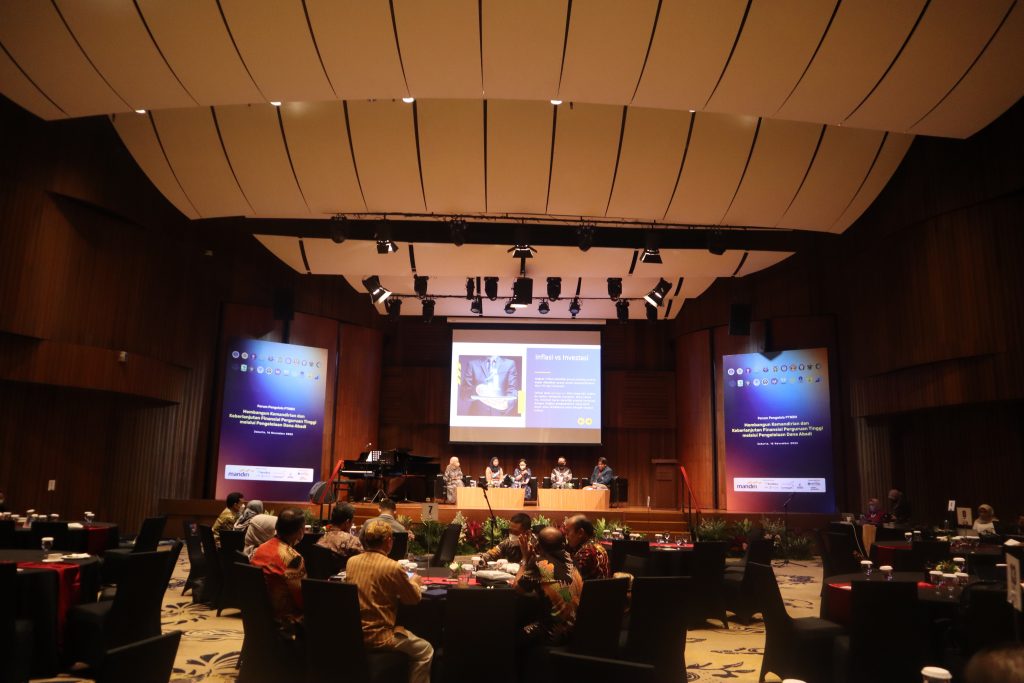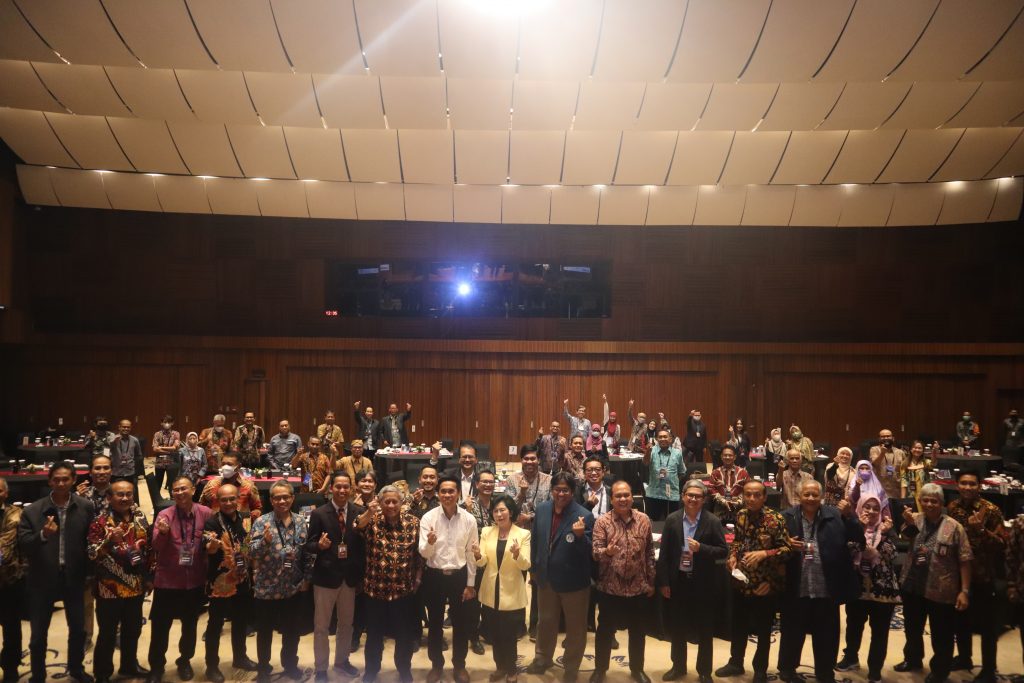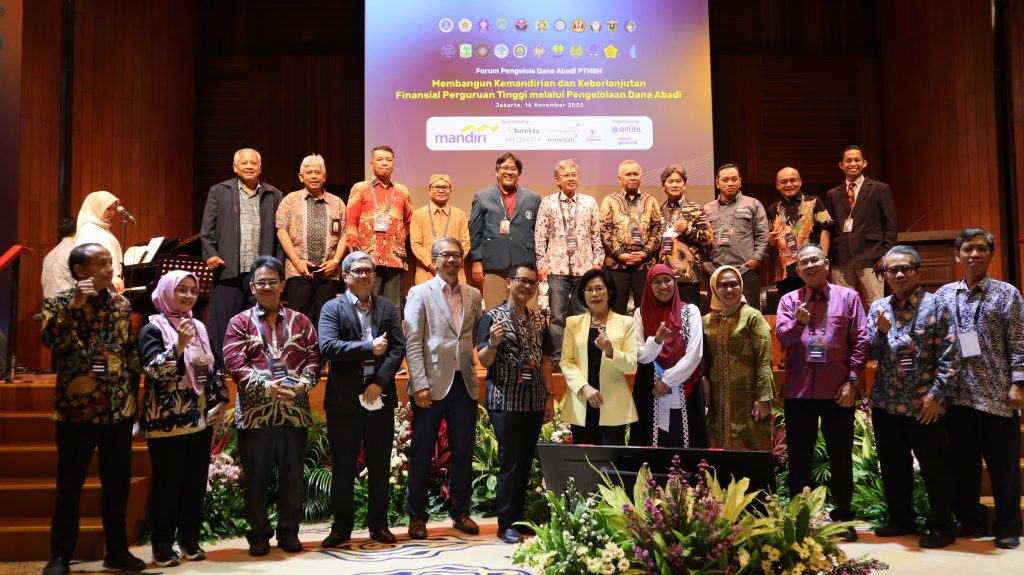Currently, Indonesia has twenty-two public universities with legal entity (PTNBH). The government has initiated the transformation of universities into PTNBH to offer autonomy and independence in university management. However, it also strives for PTNBH to be financially independent so that it may support their activities and become a world-class university. One of the sustainable investment for PTNBH is through endowment funds.
Endowment fund management provides long-term financial planning and reduces a university’s dependency on a single funding source. Yet, endowment fund management is not a common business model run by universities in Indonesia. Oftentimes, endowment fund management is still intertwined with the university’s financial management system, which has historically been more focused on cash flow operations.
This condition encourages ITB’s agency for university business and endowment fund management (BPUDL ITB) and the 21 PTNBH to hold symposium to discuss governance and creative strategies in exploring various potentials for raising and managing endowment fund on a diversity of profitable investment instruments. The symposium with the theme “Establishing University’s Financial Independence and Sustainability through Endowment Fund Management” was attended by 22 PTNBH represented by The Rector, Vice Rectors, and PTNBH endowment fund managers.
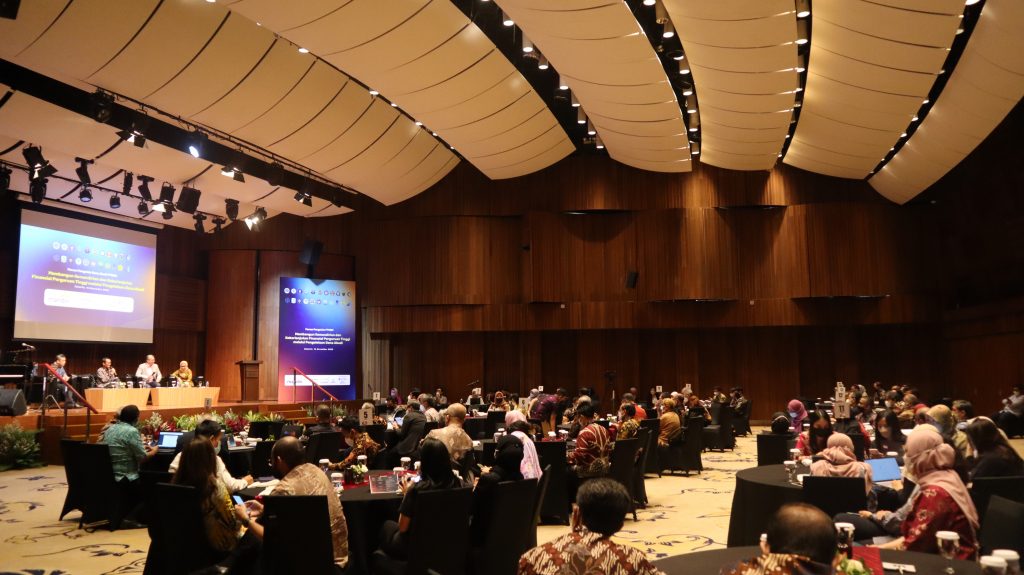
Speakers included Prof. Nizam (Act Director General of Higher Education, Research, and Technology), Luky Alfirman (Directorate General of Financial Balance, the Ministry of Finance), Irmawati (Indonesian Stock Exchange), Muhammad Oriza (LPDP), Muhammad Nuh (Indonesian Waqf Agency), and several securities companies such as Mandiri, Bareksa, and Infovesta. This event was officially opened by The Vice Rector for Finance, Planning, and Development of ITB, Muhamad Abduh, and Chair of ITB’s Board of Trustee, Yani Panigoro.
Prof. Nizam, said that universities will be more competent if they are more autonomous and well-funded. On the other hand, improving the quality of PTNBH requires significant budget for their spending. For this, the Ministry of Education, Culture, Research, and Technology in collaboration with LPDP provides a matching funds for university endowments. Prof. Nizam also reminded that every PTNBH has been equipped with fixed assets which will support in financing PTNBH activities.

Luky Alfirman added that to support university sustainability, endowment fund management must ensure its risk. Government bonds (SBN) are one of the instruments most suitable for the risk appetite of the PTNBH endowment fund, given that the principal of the endowment should be kept and only uses the resulting investment income to support university. In addition, investment policy should be directed toward best corporate governance which reflects best practices in endowment fund management.
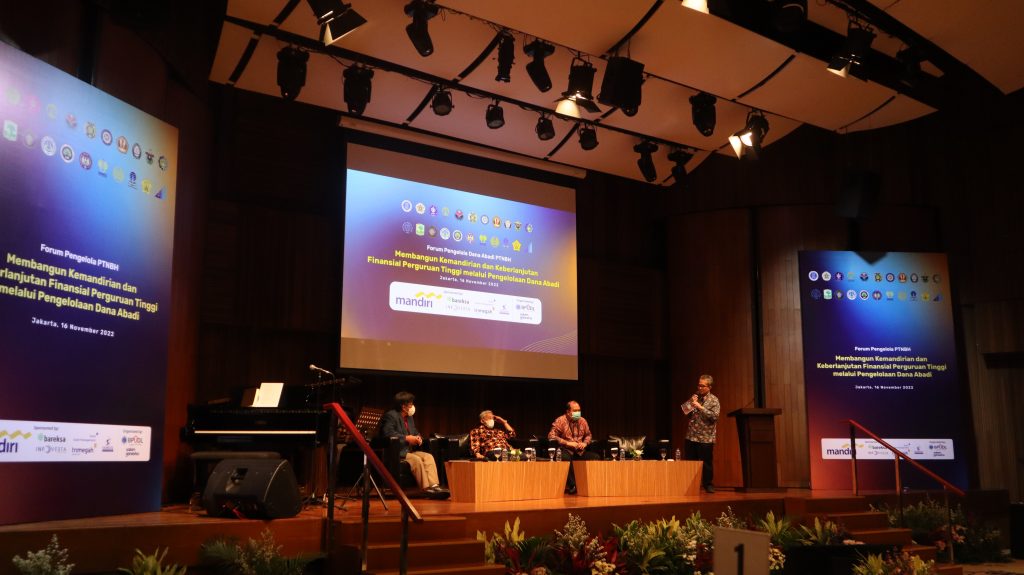
Muh. Oriza, Investment Director of LPDP, indicated that LPDP has role to manage university endowment and allocate its income to provide financial support for PTNBH through matching fund program. Nevertheless, he personally believes that this funds can be managed directly by PTNBH rather than pooled them through LPDP .
Muhammad Nuh, chairperson of the Indonesian Waqf Board (BWI), explained and offered alternative instruments in managing university endowments through waqf. He highlighted that BWI together with IPB University and ITS have invested their endowment funds in the Sukuk Waqf Private Placement Instrument. Nuh hopes that this program can be followed by other PTNBHs due to the fact that sukuk instruments are protected by the government and BWI investments are tax-exempt.
BPUDL also invites securities partners to share strategies to support endowment fund portfolios, especially by investing in financial instruments such as bonds, mutual funds, capital market stocks, and by monitoring investments using software provided by professional partners.
Director of BPUDL, Deddy Koesrindartoto believes that this event can provide enlightenment on the importance of professional and modern way to manage endowment fund in supporting the “financially independent campus” program. This initiative could accelerate the endowment fund raising program in each PTNBH, therefore making substantial contribution to each PTNBH. In the end, we need to establish an ecosystem which could drive all stakeholders that endowment funds must be prioritized to ensure the sustainability of education in Indonesia.
BPUDL appreciates Bank Mandiri, Bareksa, Infovesta, PT Sucorinvest Asset Management, PT Trimegah Sekuritas, PT Samuel Aset Manajemen, and PT Syailendra Capital for their participation as sponsors, and we look forward to collaborating with them in managing PTNBH endowment funds.
